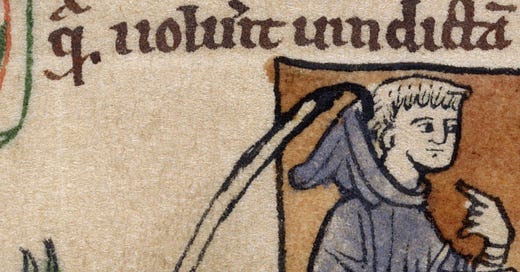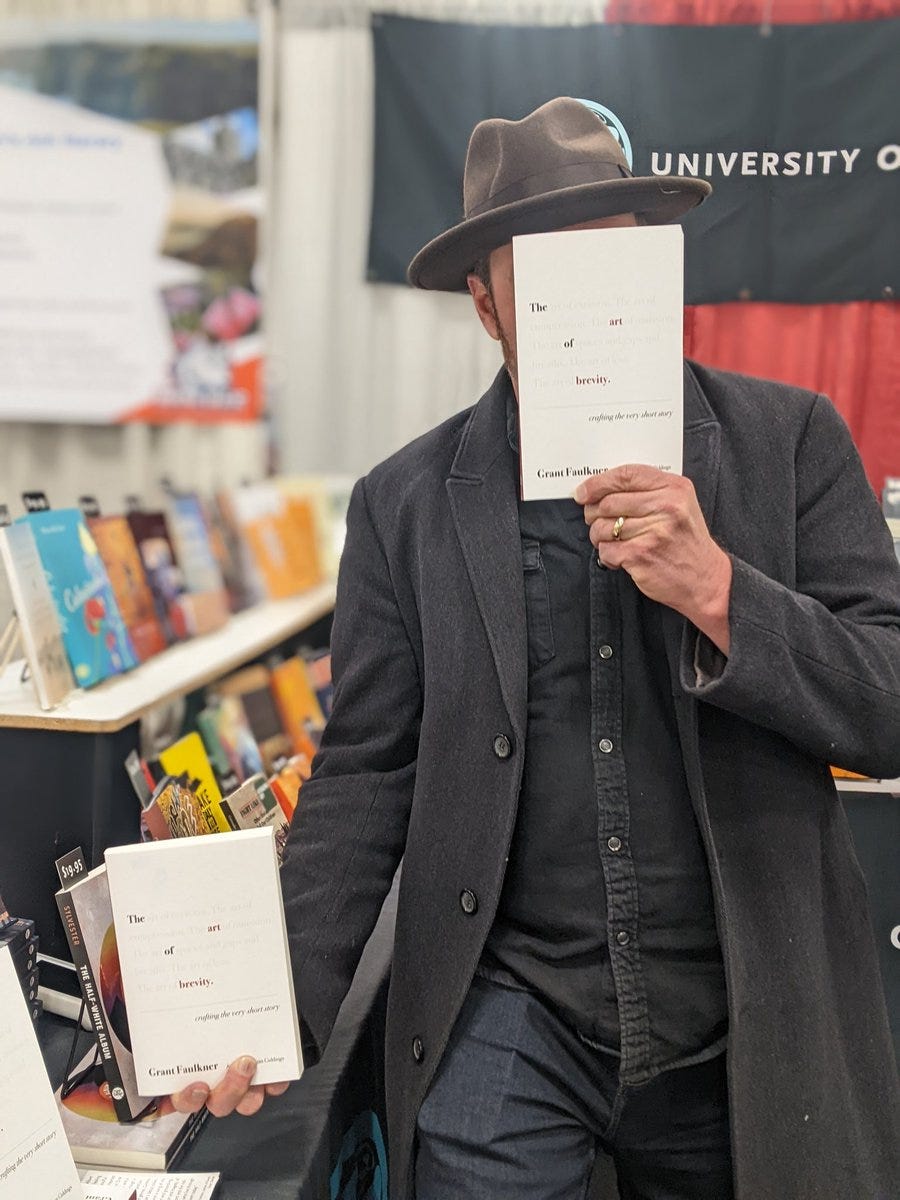Each era gets a moniker, and this era might be best known as the Age of Distraction. Distractions are the one thing that seemingly everyone is grappling with (and hating themselves for).
So I was pleased to see What Monks Can Teach Us About Paying Attention in The New Yorker. The impulse to be a monk is fundamentally about getting closer to God, so it’s an intimate pursuit. To be a monk is to practice a devotion that hones an intense focus to achieve a sublime oneness with God. To be in the ultimate state of love.
The article is based on the book The Wandering Mind: What Medieval Monks Tell Us About Distraction, by Jamie Kreiner. It covers the fourth through the ninth centuries, when monastic orders were still devising rules about sleep, food, work, possessions, and prayer in an effort to get closer to God. I should note that books were considered the Internet of its day by many—a source of diversion.
Distractions were viewed as the products of the Devil, much as we view them today. Distractions are temptations to wander, to drift, to look elsewhere. Distractions are seductive and promiscuous—they take us out into the world instead of into our souls. They cause us to love other things than just God.
I’ve read a lot of writing by monks, everything from the Desert Monks to Thomas Merton, because I’ve always been attracted to an ascetic life and I’ve always loved to think about how to live a life that brings you closer to the divine (first as a believer, and now as a non-believer). As a writer and a long-distance runner, you might say that I naturally have a monkish proclivity.
I like extremes, so I enjoyed reading about Macarius of Alexandria, who pursued his spiritual disciplines for twenty days straight without sleeping; Caluppa, who never stopped praying, even when snakes filled his cave; and Simeon Stylites, who lived alone atop a pillar near Aleppo for thirty-five years.
Our minds are built for distraction as much as they are designed for focus.
As I read the article, though, I wondered if instead of thinking about distractions as being the product of the devil, we should celebrate distractions as being divine gifts? Distractions are at the heart of creativity, after all. A thought teases you, runs off, and you chase it with intense focus and vigor. Or you let your mind fill up with teases and tickles, just enjoying the flow of letting your thoughts wander.
I wondered what kind of God needed such slavish focus. Only a self-centered, needy, insecure God would desire such a thing, especially when the world he/she/they had created is so bounteously present and calling for attention.
I thought of how my son was diagnosed with ADHD, and how that brought up all sorts of questions about my own brain type. I thought about how we culturally revere brain types that are focused and organized. People with what I’ll call the “focused brain type” are rewarded academically and professionally. But a person with ADHD is prescribed medication.
Why don’t we prescribe medication for those with a focused brain type?
We look down on mess, in matters of life and the soul. Cleanliness is next to Godliness, but I’m not sure that a clean mind (or house) leads to much creativity.
Our minds are built for distraction as much they are designed for focus. If the mind was created in the image of God, as Genesis says, then its distractible qualities should be considered equally sacred. We should bow to our distractions, honor them, search for the divine in them (because perhaps they can even lead us to the divine).
I say this all because I hear so many people beating themselves up for their lack of focus. I beat myself up as well. Losing focus, especially in this Age of Distractions, is worth being concerned about, so I don’t want to disparage the art of focusing because we need focus to go deeper into the places distractions take us.
But let us pause and toast the myriad thoughts and images that dart and dash and dance through our minds, always leading us elsewhere, always seeking to entertain, always seeking answers to our questions.
We wouldn’t know much about the world without our distractable minds. Many a novel, many a love, many a great thought has been formed by a stray thought, by a wink that passes by in a wisp.
I always say my best writing is a type of prayer because it takes the form of a devotion to something beyond me, but every story begins in my wandering and wondering.
Because a quote
“A photograph is a secret about a secret. The more it tells you the less you know.”
—Diane Arbus
Because devotion
The quote above is included in my new book, The Art of Brevity. I like it because a photograph is a single moment of life, yet if it’s taken at the “decisive moment,” as Brassai put it, then it evokes a bigger story.
Arbus speaks to the duty of an artist: to not stop at the secret, but to find the secret within the secret. And then she speaks to an artistic discipline that a monk would respect: to search for the essence.
Too much of life and art finds itself in the superfluous.
Because The Art of Brevity
Please consider buying The Art of Brevity. Writers tell me they like it. You might say it’s my way of being a monk in this world. My little stories are my little prayers. I like to drop them into the world.
Because more about me
I am the executive director of National Novel Writing Month, the co-founder of 100 Word Story, and an Executive Producer of the upcoming TV show America’s Next Great Author. I am the author of a bunch of books and the co-host of the podcast Write-minded.
My essays on creative writing have appeared in The New York Times, Poets & Writers, Lit Hub, Writer’s Digest, and The Writer.
For more, go to grantfaulkner.com, or follow me on Twitter or Instagram.







I was trying to parse out some similar ideas a while back, and was thinking about distraction vs. attraction. And how we are often DIStracted by things we ATtracted to. Like those "divine gifts" you mention...
Well, I feel vindicated, thank you very much. And thank you for knowing what's going on inside my head, scary as that may be. The voice in my head that presses me to be more focused is not a kind voice and does not seem to understand creativity (for me) comes through distractions. For example, I'm supposed to be cleaning the house right now. Instead, I'm reading your blog. You, Grant, are a genius of a distraction and one that brings me joy. Permission to be me GRANTed.